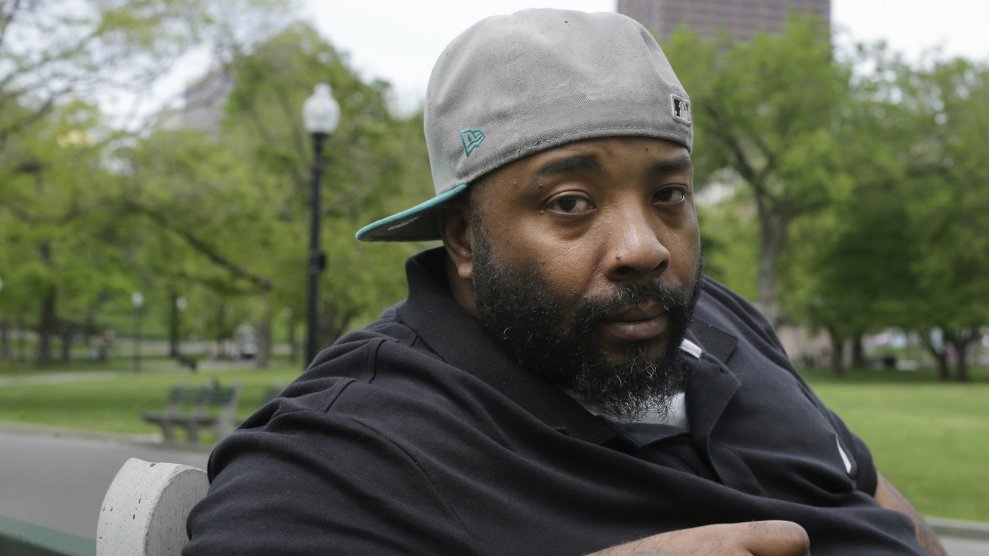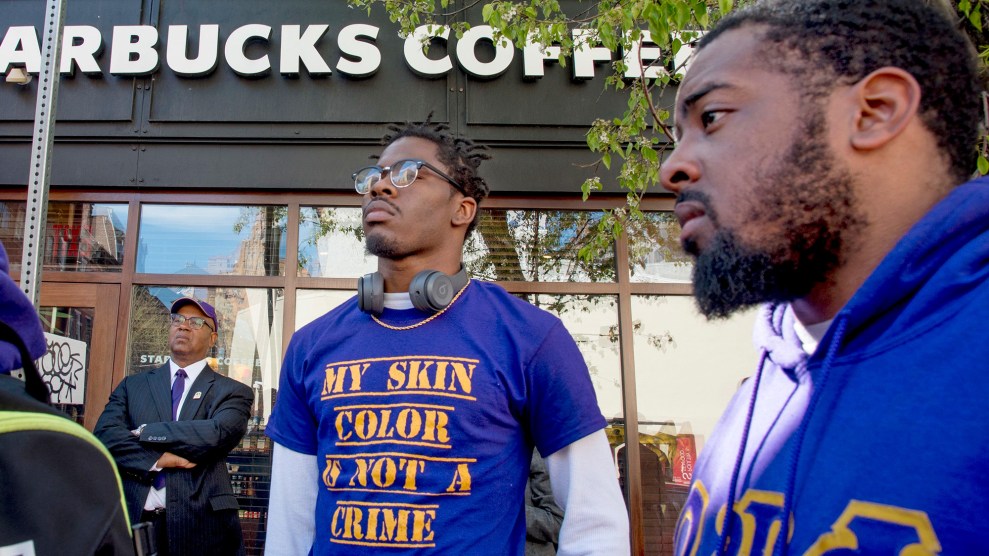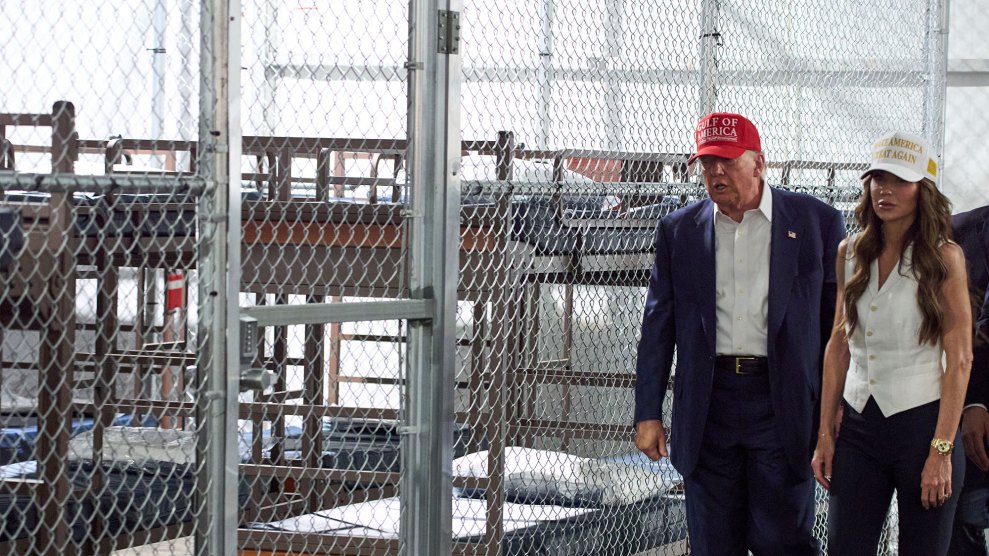
Emory Ellis, who was apparently suspected of trying to pass the world's most perfect counterfeit ten-dollar bill.Steven Senne/AP
A homeless man is suing fast-food giant Burger King for $950,000 in damages after staff at one of the company’s Boston locations had him arrested for trying to pay for his food with an allegedly counterfeit bill. The man, Emory Ellis, was then jailed for three months, his lawyer told me, after a judge determined that his arrest violated his terms of probation for an earlier conviction. Just one problem: The money was real.
According to his complaint, Ellis, 37, was trying to buy breakfast at Burger King one morning in November 2015 when the cashier asserted that his $10 bill was bogus. Ellis insisted otherwise, and when the cashier wouldn’t budge, Ellis said he would take his $10—all he had to his name—and leave. Instead of returning the bill, restaurant staff called the police. Ellis was arrested and later charged with forgery of a bank note—a crime that can carry a life sentence, according to the complaint.
The complaint alleges that Ellis was discriminated against because he appeared unkempt. It seeks damages for civil rights violations, defamation, theft of Ellis’ money—which he apparently never got back—and compensation for his months in lockup. The suit names Burger King, the franchisee, and the cashier as defendants, and also accuses Burger King and Two Guys of negligence for hiring the cashier that allegedly wronged Ellis. It does not assert that Ellis, who is black, was discriminated against because of his race—although Justin Drechsler, his attorney, suspects that race was a factor.
Ellis was released in February 2016 after authorities examined bill and determined it was real—a judge subsequently determined there had been no probation violation. The complaint asserts that he suffered “public humiliation and shame” as well as “sleeplessness, anxiety, and depression” because of his arrest and incarceration. “He’s expressed to me many times how much it sucks to lose three months of your life,” Drechsler told me. “People will say, ‘He was homeless. Who cares if he went to jail for three months? And even when you negotiate with these insurance companies [for the franchisee], they’ll say, ‘Well, he didn’t lose any wages.’ He lost his goddamn freedom! You think the wages mean anything?”
Two Guys Food, the franchisee, offered Ellis a $10,000 settlement, the lawyer said, “but we didn’t think that was nearly sufficient—$10,000 is a nuisance money offer.”
It’s not about the money, in any case, Drechsler says: “Acts of discrimination, subtle and not so subtle, happen every day, and most of them don’t see the light of day because most of them don’t result in any consequences,” hence the lawsuit. “If Emory was in it for a quick buck, he would have just taken the 10 grand. How many homeless people do you know that would turn down that money?”
Ellis now splits his nights between friends’ couches, shelters, and, when there’s no other option, the street, Drechsler says. If he wins the suit, he plans to use the money to find stable housing and get himself back to work.
In a statement to Mother Jones, Burger King said it does “not tolerate discrimination of any kind” and distanced itself from the lawsuit, holding that Two Guys “is responsible for handling all legal matters” related to the suit because it “independently owns and operates” the franchise location. A call to the franchise where the incident took place was not returned, and the cashier could not be reached for comment.
You can read Ellis’ complaint here.

















